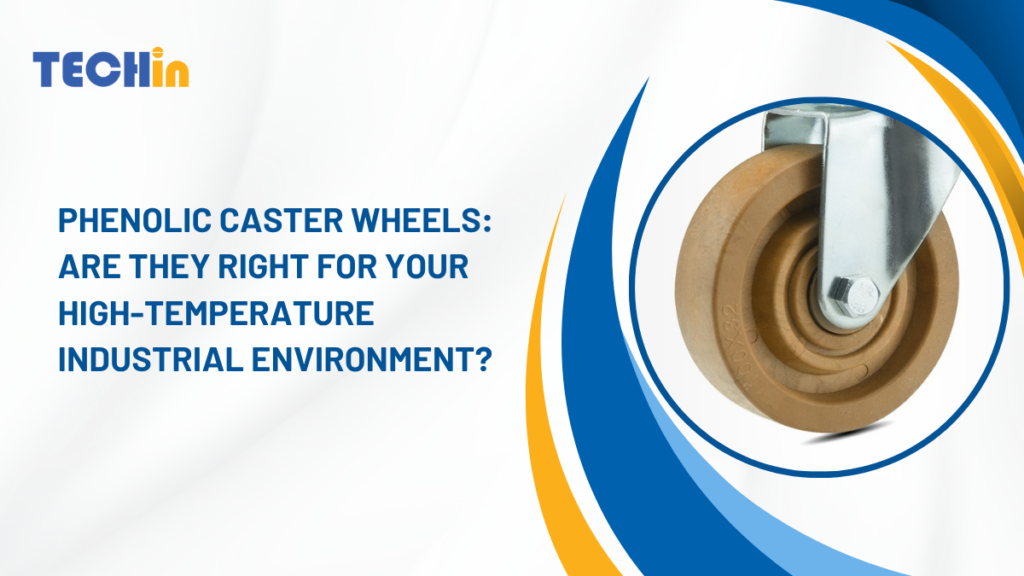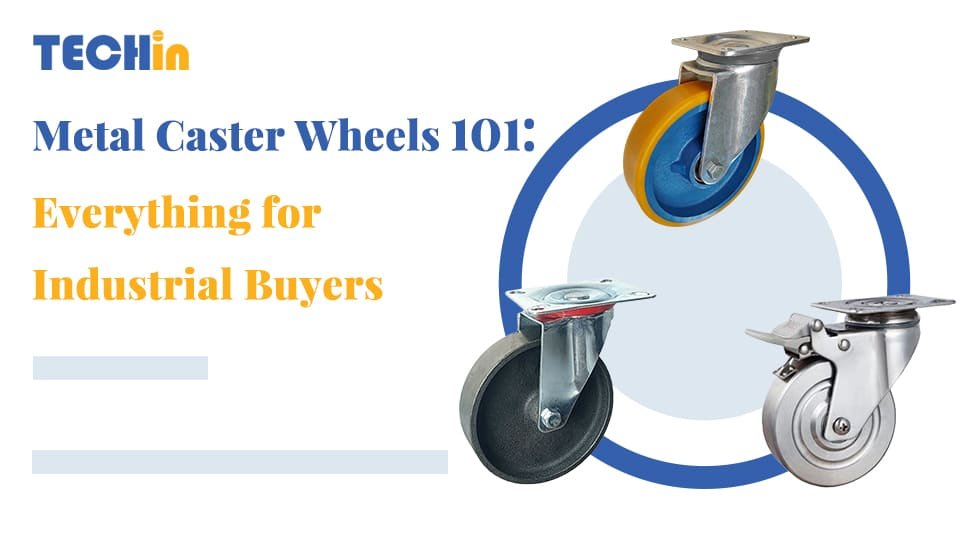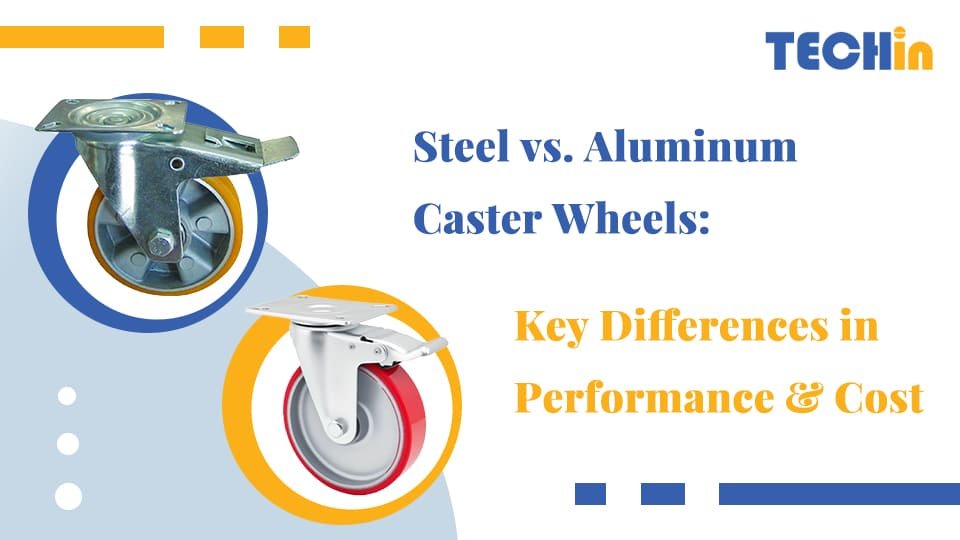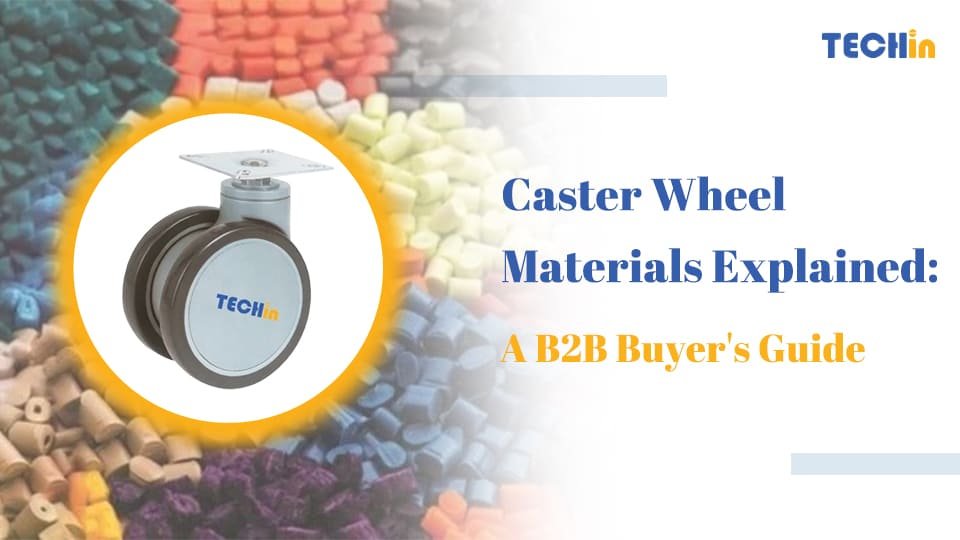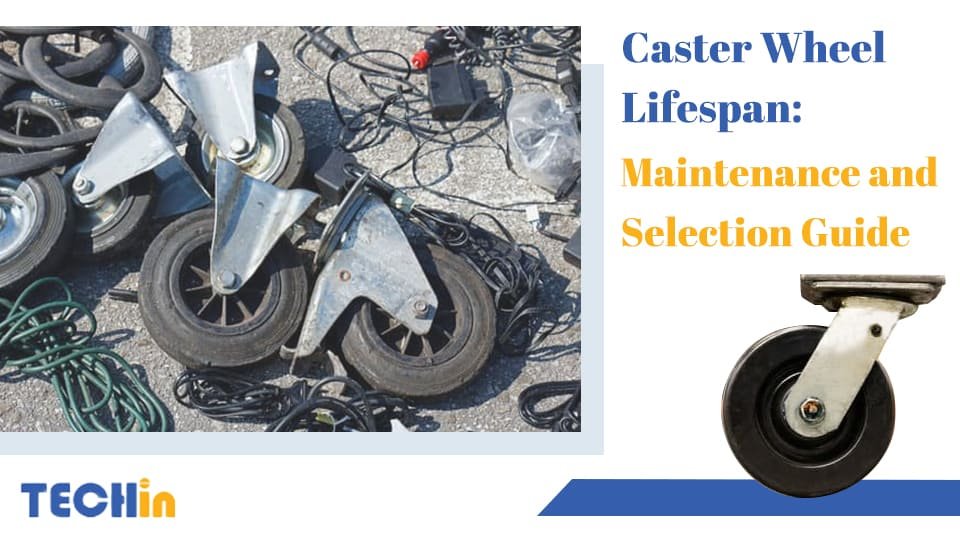Let’s face it: some industrial environments are demanding. High heat from autoclaves or baking lines can quickly degrade standard caster wheels. Phenolic caster wheels are engineered to withstand these extreme temperatures, making them a crucial component in many industrial applications. But what exactly are they, and should you consider them for your operations?
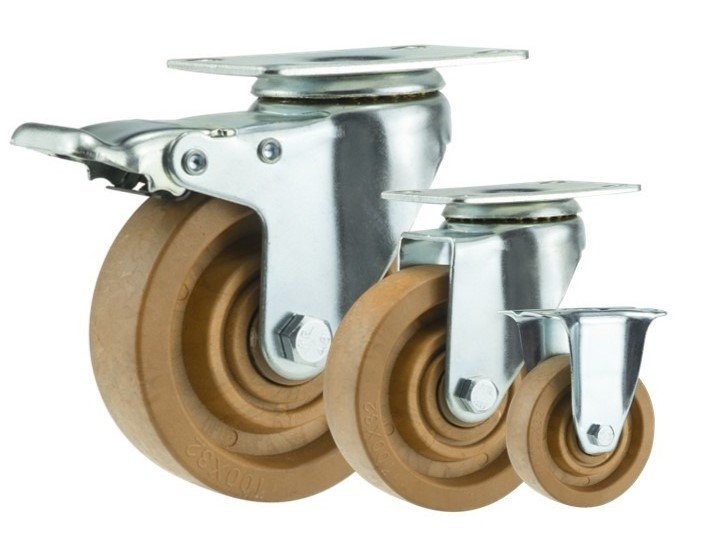
Phenolic caster wheels are constructed from compressed phenolic resin, designed specifically for dry-heat environments. They can tolerate temperatures up to 274°C (525°F) intermittently. These wheels offer a high load-bearing capacity, resist oils and chemicals, and are well-suited for settings like powder coating ovens, bakery operations, and laboratory equipment. Their combination of strength and cost-effectiveness makes them a popular choice across various industries.
Let’s examine the benefits, compare them to alternatives, and provide maintenance tips to help you determine if phenolic wheels are the right solution for your heated industrial applications.
What Are Phenolic Casters
Phenolic casters are industrial wheels manufactured from layers of phenolic resin-impregnated canvas or paper, compressed under intense pressure. This process results in a hard, dense wheel capable of performing in harsh conditions.
A key feature is their high heat tolerance, with many models rated for continuous exposure to 246°C (475°F) and intermittent exposure up to 274°C (525°F). They are most effective in dry heat conditions and are often paired with stainless steel rigs for complete high-temperature compatibility.
Key Advantages of Phenolic Casters
Here are the core benefits that make phenolic casters a preferred choice for heat-intensive environments:
- Exceptional Heat Resistance
Ideal for ovens, sterilizers, and other thermal processing equipment. - High Load Capacity
Capable of supporting substantial weights without deformation, suitable for heavy machinery or loaded carts. - Chemical Resistance
Resistant to oils, grease, and mild acids, making them appropriate for demanding factory floors. - Cost-Effective Durability
Compared to high-temperature polyurethane or metal wheels, phenolic offers excellent durability at a competitive price point. - Non-Marking Properties
Typically do not leave marks on concrete or tile, although best used on smooth floor surfaces.
💡 Note: Phenolic wheels may chip on wet or uneven floors. In such cases, consider alternatives like polyurethane.
Phenolic Casters vs. Polyurethane: Making the Right Choice
Both caster types have specific applications, and the optimal choice depends on your operational environment.
| Feature | Phenolic Casters | Polyurethane Casters |
|---|---|---|
| Heat Resistance | Up to 274°C (525°F) | Up to 82°C (180°F) |
| Floor Protection | Harder, may chip on rough floors | Softer, protects various floor types |
| Noise Level | Higher on hard floors | Quieter operation |
| Moisture Tolerance | Limited (absorbs water over time) | Excellent |
| Durability in Dry Heat | Excellent | Limited |
Select phenolic wheels for high-temperature dry environments, and polyurethane wheels for wet or uneven floors where noise reduction is a priority.
Applications of Phenolic Wheels: Real-World Examples
Phenolic caster wheels excel in industries requiring both heat resistance and mechanical strength. Here’s how they are utilized in key sectors:
- Manufacturing Plants
Particularly in powder coating operations and dry heat autoclaves, phenolic casters provide reliable performance. They withstand the high temperatures of curing ovens and facilitate the movement of materials through heated environments. - Food Industry
In commercial bakeries, phenolic wheels are used on oven racks, mixing carts, and tray dollies. Their ability to endure continuous baking cycles without deforming or leaving residues makes them a sanitary and dependable option. - Automotive Industry
Factories involved in auto part production or vehicle painting rely on phenolic wheels for parts carts, engine stands, and toolboxes. The wheels resist metal shavings, grease, and sustained heat from manufacturing processes. - Medical and Laboratory Machinery
Used on dry heat sterilizers and lab carts, phenolic wheels offer consistent performance during repeated sterilization cycles in controlled environments such as hospitals and research labs.
These applications demonstrate that phenolic wheels are engineered for robust performance, particularly where heat resistance and load capacity are critical.
Selecting High-Temperature Casters: Key Considerations
When choosing casters for high-heat environments, keep the following factors in mind:
- Temperature Range
Determine the maximum operating temperature of your equipment. Some casters fail at 120°C (250°F), while others can withstand temperatures exceeding 270°C (518°F). - Load Requirements
Select a wheel that supports 25–30% more than your maximum anticipated load to ensure safety and longevity. - Floor Type
Smooth floors are preferable. Phenolic wheels may experience accelerated wear on rough or uneven surfaces. - Wheel Size
Larger wheels roll more easily and dissipate heat more effectively. Consider 4” or larger wheels for optimal performance. - Rig Material
Use stainless steel rigs for complete high-temperature compatibility, especially in ovens or autoclaves.
Maintaining High-Temperature Casters: Best Practices
Like all mechanical components, caster wheels benefit from proper maintenance. Here’s how to maintain phenolic casters:
- Regular Inspections
Check for cracks, chips, and tread separation weekly, particularly after repeated heat cycles. - Cleanliness
Keep the bearing area free of debris. Dust and powder coatings can solidify under heat, impeding performance. - Bearing Lubrication
Use high-temperature grease to ensure smooth rolling, even at elevated temperatures. - Timely Replacement
Replace wheels that exhibit flattening or wobbling. Continuing to use worn wheels can compromise equipment and safety.
🔧 Many caster suppliers offer high-temperature bearing options. Always verify specifications before making a purchase.
In Conclusion
Phenolic casters provide unmatched durability in high-temperature environments. Whether you operate a bakery or manage an automotive plant, they offer a reliable and cost-effective solution. If you have questions or need a product recommendation, please leave a comment—we are here to assist you.

